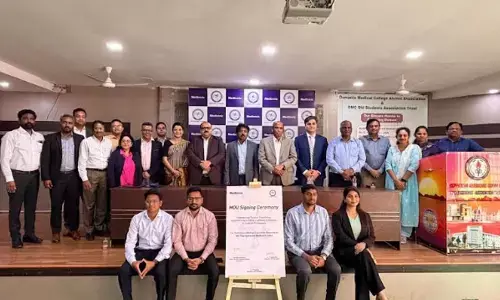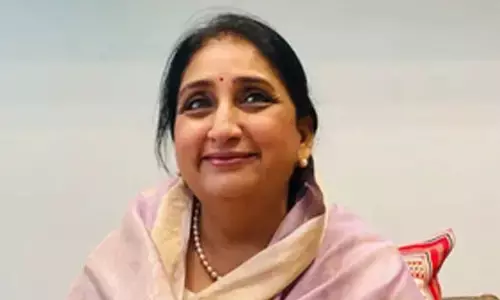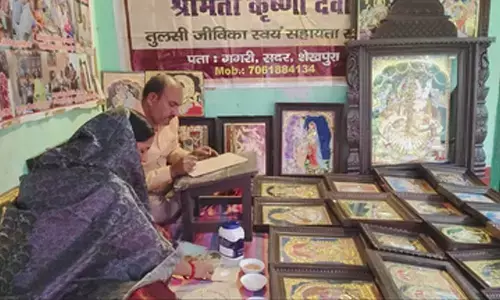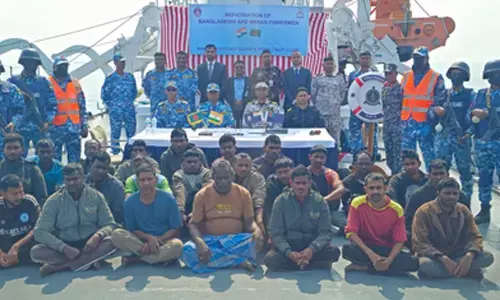Our Constitution is the only beacon of hope for every Indian
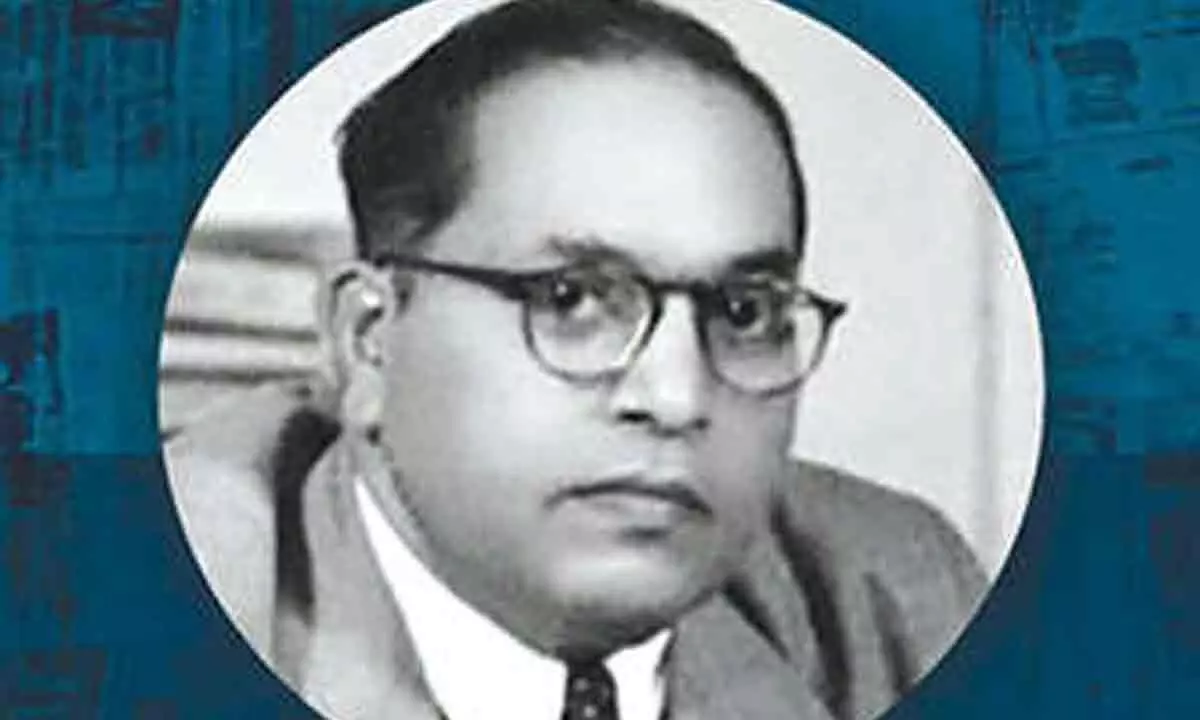
Ambedkar emphasized the transformative potential of the document; establishing liberty, equality, and fraternity as new India’s foundation
Our Constitution is not just the lifeline of India but the only beacon of hope for all. It was, therefore, so gratifying to see Members of Parliament from all political parties expressing their solidarity in unequivocal terms with the Constitution, while participating in a two-day special discussion on the 75th anniversary of the adoption of the Constitution of India. The discussion ended in the Lok Sabha with the address of Prime Minister Narendra Modi, who on December 14 rightly hailed the vision and efforts of the framers of the Constitution, which is now the most valued, revered and protected document for every citizen passionate about equality, justice, fraternity, liberty, inclusivity, responsibility and accountability to build an inclusive Viksit Bharat, where everyone leads a life of dignity.
From the snow-capped Himalayas in the north to the serene backwaters of Kerala in the south, from the deserts of Rajasthan to the lush greenery of the Northeast, every corner of our nation tells a unique story of coexistence and harmony. We firmly believe that our country’s strength lies in its ability to embrace differences, weaving them into a shared heritage of festivals, art, and wisdom. For heaven’s sake, let this unifying essence remain untouched, as it is the foundation of our country’s unparalleled beauty and resilience. On November 26, 1949, as the Constitution of India was adopted by the Constituent Assembly, Dr. B.R. Ambedkar, the principal architect of the Constitution, delivered a powerful speech reflecting the historic moment. He emphasized the transformative potential of the document, describing it as a framework that established liberty, equality, and fraternity as the foundation of the new India.
Ambedkar also warned of the challenges ahead, cautioning that while the Constitution could create a political democracy, sustaining it required social and economic democracy. He urged Indians to eschew authoritarianism, caste-based discrimination, and communalism, and to strive for justice, dignity, and unity in a diverse nation. His words remain a guiding beacon as we reiterate our resolve to uphold democratic ideals as enshrined in the Constitution.
There is no denying the fact that our social and economic democracy remains a complex and evolving landscape, shaped by our diverse population and vibrant democratic institutions. So far as social democracy is concerned, we continue to grapple with challenges like caste-based discrimination, exclusion, deprivation, gender inequality, and regional disparities, even as progressive laws and social movements strive to bridge these gaps.
Economically, we have achieved significant growth and emerged as one of the world’s largest economies, yet issues like income inequality, rural-urban divides, and unemployment persist. While flagship government programmes aim to empower marginalized communities and promote inclusive growth, their implementation often faces bureaucratic and systemic hurdles. The balance between safeguarding democratic values and ensuring equitable resource distribution remains a critical focus for policymakers and civil society.
As we wish to see our beloved country becoming a developed nation by 2047, we need to remind ourselves that persistent social and economic disparities have far-reaching repercussions, which affect not only individuals and communities but the nations as a whole. Such disparities, often rooted in systemic inequality, hinder access to education, healthcare, and economic opportunities for marginalized groups, perpetuating cycles of poverty and exclusion.
Social cohesion suffers when divisions between the privileged and the underserved widen, fostering resentment, mistrust, and social unrest. Economically, unequal societies experience slower and less sustainable growth, as untapped human potential remains unrealized. Health disparities emerge as a significant consequence, with underprivileged populations suffering from higher rates of disease, malnutrition, and lower life expectancy.
Education gaps further compound the problem, limiting upward mobility and creating a workforce ill-prepared for modern challenges. It is not hidden either from the policy makers, stakeholders and champions of inclusive Viksit Bharat that a large chunk of SC, ST, OBC and other poor children are not getting higher education in the country. Their gross enrolment in higher secondary schools is quite high but much less in higher education institutions (HEIs), casting serious doubts on our commitment to make ‘One Nation, One Education, Affordable Fee’ a reality. They also know the pass percentage of SC, ST, OBC, minority and other poor students who admit themselves in HEIs.
I would not like to talk about their numerical presence in the top seats of higher education in the private sector.
Similarly, political inequality erodes people’s trust in institutions, fuels populism, and destabilizes democratic systems. Even after so many decades of Independence, our SCs, STs and OBCs do not have representation in the Parliament and State legislative assemblies proportionate to their population. The haves among us, who are numerically a minority social group, dominate political, judicial, social, academic and religious landscapes, leaving little or no scope for have-nots, who are left contented with whatever little bit is guaranteed by the affirmative and welfare policies in force.
Hence, a multifaceted approach including equitable policy-making, targeted social programs, and initiatives are required to promote inclusive economic growth. We must remember that persistent inequalities threaten to undermine social stability, economic prosperity, and the collective progress of the nation as a whole.
Our political class, irrespective of their hues, biases and prejudices, must get their guidance from the Constitution of India, which stands as the supreme law of the land. It emphasizes governance based on justice, liberty, equality, and fraternity, ensuring that all citizens have access to fundamental rights and opportunities for growth. Our Constitution tells our rulers to uphold democratic values, maintain the rule of law, and protect the secular and sovereign nature of the republic. The Directive Principles of State Policy guide them in fostering social welfare, reducing inequalities, and building an inclusive and sustainable society.
In conclusion, the Constitution mandates one and all to serve the nation with transparency, accountability, and dedication, ensuring the realization of the Constitutional vision of a progressive and harmonious India.












